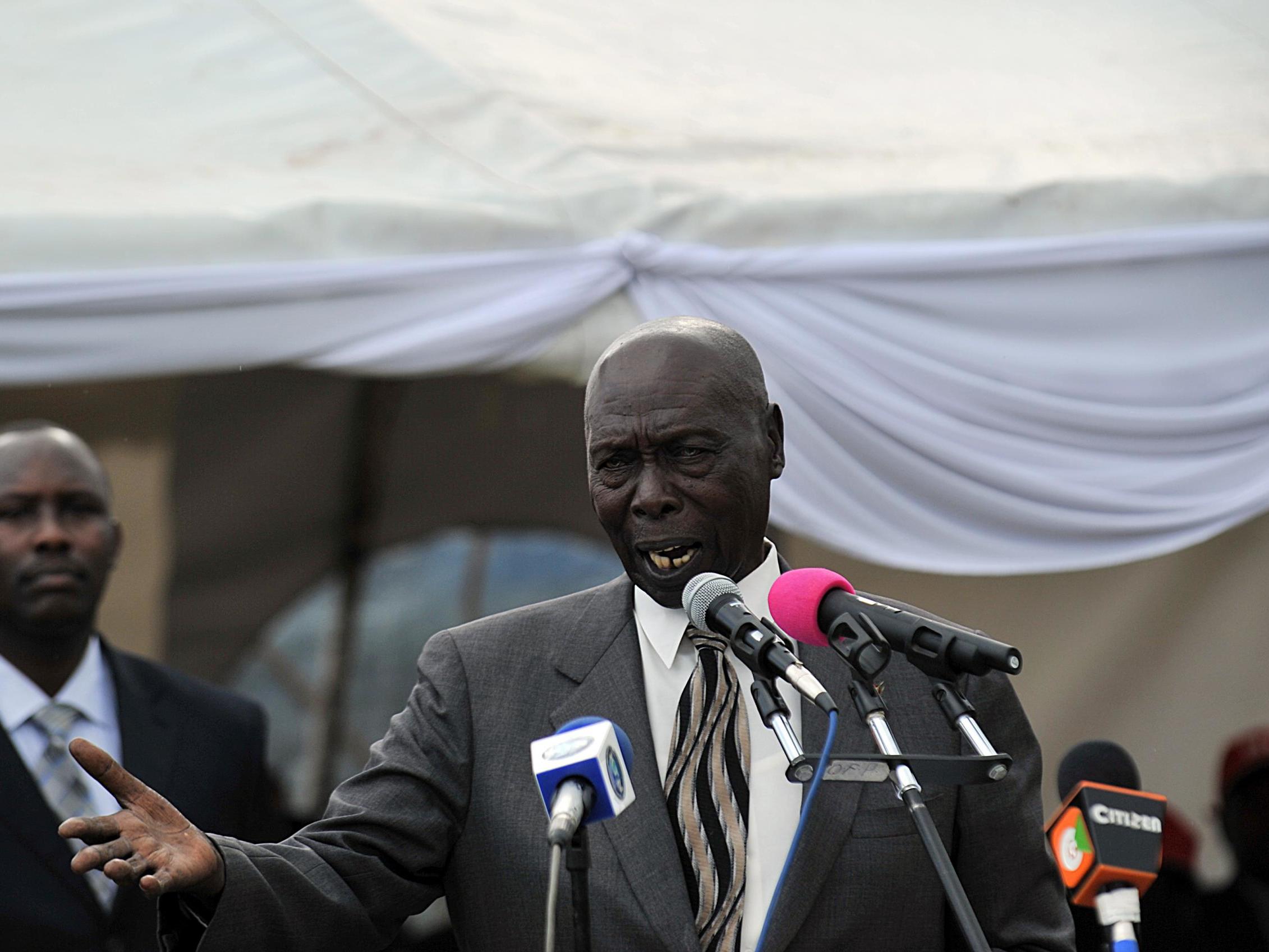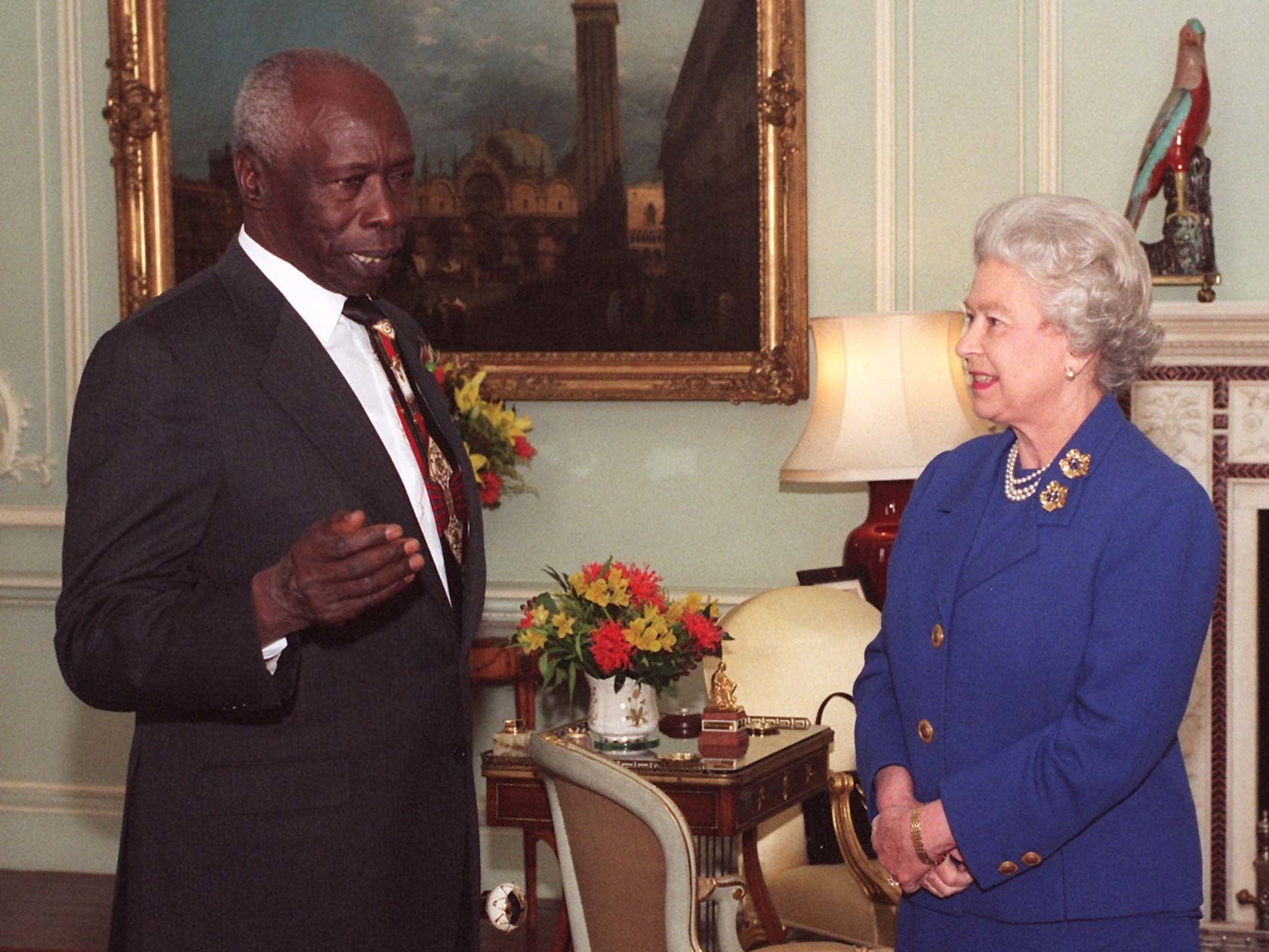Daniel arap Moi death: Former Kenyan president, one of Africa's last 'Big Men', dies aged 95
Corrupt and repressive autocrat led East African nation for 24 years

Your support helps us to tell the story
From reproductive rights to climate change to Big Tech, The Independent is on the ground when the story is developing. Whether it's investigating the financials of Elon Musk's pro-Trump PAC or producing our latest documentary, 'The A Word', which shines a light on the American women fighting for reproductive rights, we know how important it is to parse out the facts from the messaging.
At such a critical moment in US history, we need reporters on the ground. Your donation allows us to keep sending journalists to speak to both sides of the story.
The Independent is trusted by Americans across the entire political spectrum. And unlike many other quality news outlets, we choose not to lock Americans out of our reporting and analysis with paywalls. We believe quality journalism should be available to everyone, paid for by those who can afford it.
Your support makes all the difference.The former president of Kenya Daniel arap Moi, who ran the East African nation as a virtual dictator for decades, has died aged 95.
Mr Moi’s death was announced on Tuesday morning by his protégé and the current president, Uhuru Kenyatta.
Although a controversial figure thanks to his iron grip on power and the vast corruption which went unchecked throughout his reign, Mr Moi in his later years had become a kind of elder statesman in Kenya.
Mr Kenyatta ordered all flags to be flown at half-mast and the start of a period of national mourning until Mr Moi’s state funeral.
Mr Moi assumed the presidency after the death of Kenya’s founding father and first president Jomo Kenyatta in 1978, whom he had served as vice-president.
Within a few years his government had turned Kenya into a de facto one-party state and shortly afterwards was forced to put down an attempted coup led by some opposition figures and air force officers, leading to hundreds of deaths.
For years afterwards Mr Moi exercised almost total control, neutering Kenya’s parliament and crushing any kind of dissent.
Thousands of activists, students and academics were arrested and tortured, often without charge for years at a time.
The nadir came in 1990 when his own foreign minister was murdered inside one of Mr Moi’s official residences.
Although he maintained a sort of stability and peace at a time when other East African countries were descending into violent conflict, Kenya’s economy badly suffered from the rampant corruption under his rule.
A series of scandals emerged in the 1990s, including an infamous case where the central bank lost at least $1bn in compensation payments for bogus gold and diamond exports.
His government also stripped hundreds of millions from the treasury by issuing state contracts to non-existent firms.
As the economy collapsed, internal pressure to Mr Moi’s autocratic rule grew and he was pressured into allowing multi-party elections to resume in 1992 and again in 1997.

Both times he retained power, although the polls were marred by ethnic violence between Kenya’s tribal communities.
He finally left office in 2002 in a genuinely free election, where his chosen successor, Uhuru Kenyatta, surprisingly lost to the opposition candidate.
Mr Kenyatta finally won the presidency in 2013 and is currently serving his second term.
“Our nation and our continent were immensely blessed by the dedication and service of the late [Mr Moi],” he said in a statement.
“As a leading figure in the struggle for Kenya’s independence, and an ardent Pan-Africanist, the late Mzee Moi’s legacy undoubtedly positions him as one of Africa’s greatest, a man who made his nation and his continent immeasurable better.”
Mr Moi “lives on in the hearts of millions of Kenyans who benefited from his servant-leadership”, the president concluded.
Join our commenting forum
Join thought-provoking conversations, follow other Independent readers and see their replies
Comments